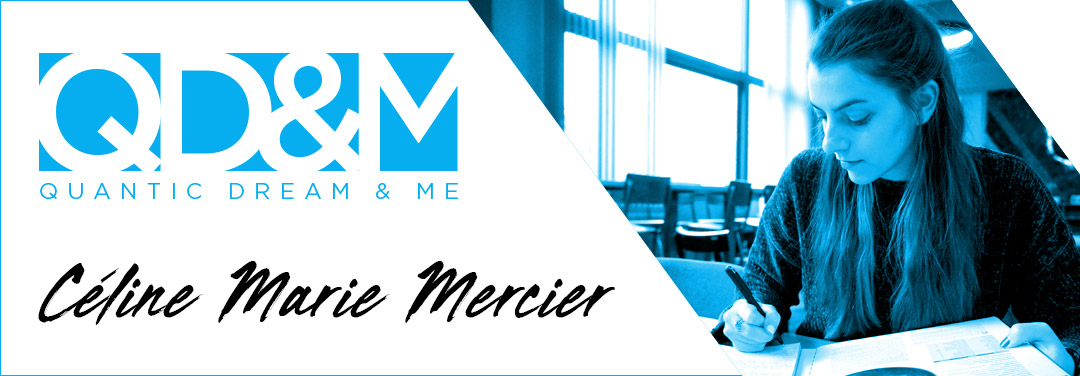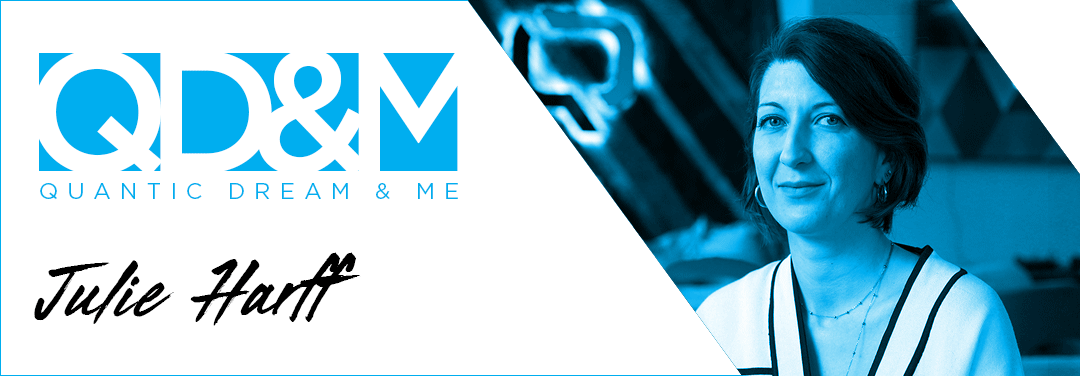QD & ME – AXEL RIVIÈRE – TECHNICAL SUPERVISOR
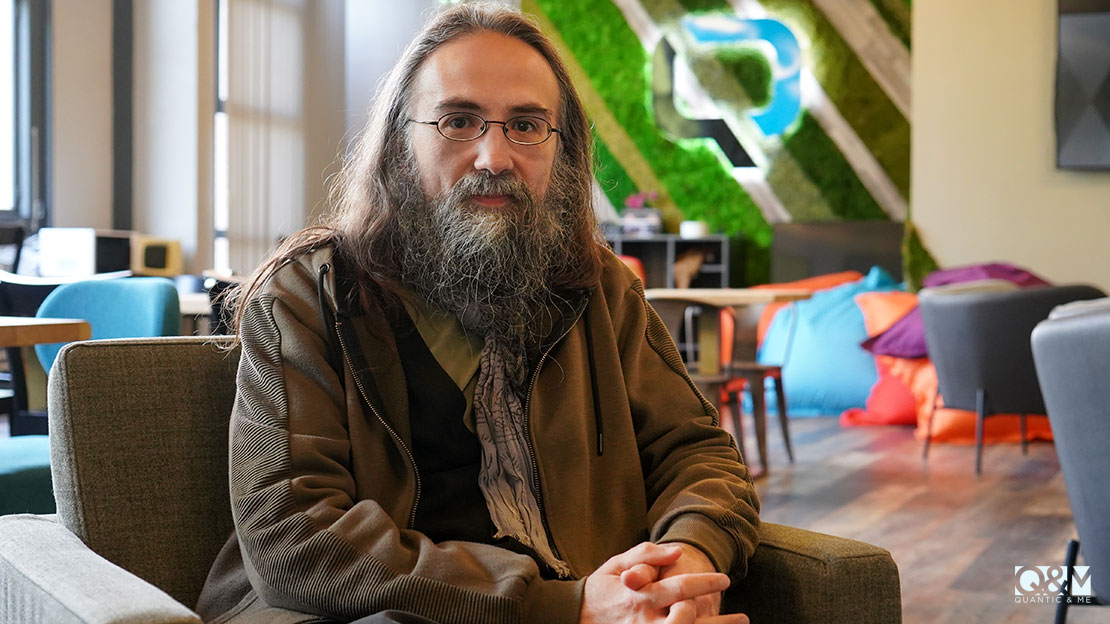
Quantic Dream: Please introduce yourself! What’s your name, where are you from, and what is your role at QD?
Hi, I’m Axel, a pure Parisian product raised on chocolate croissants! (just kidding) I have a relatively atypical profile, I mostly did music during my youth, before going for a scientific and computer degree. As for my role at Quantic Dream, I’m a Technical Supervisor. I started at the studio in 2004 as a contractor, and I worked on every game since Fahrenheit: Indigo Prophecy, until 2019. I came back in 2021, after a stint at Dontnod, but overall, my life at Quantic Dream represents a dozen years, spread over two decades!
QD: How did you come to work in the video games industry? Was it a lifelong dream, or did you luckily stumble into it?
It seemed unattainable for the teenager I was in the early 90s, so it wasn’t even a dream, but rather a hobby. For me, video games were made by “coding stars” in the United States or Japan; keep in mind there were no dedicated schools [for video game programming] at the time and the internet was in its infancy, so there was little information on training. I just had fun on my graphic calculators imagining how games were made; I even developed a few amateur games and demos as a hobby, including a Star Wars inspired game, which was played by 4 people, including me :p
After earning a general computer science masters’ degree, I tried to join software development companies, before aiming for the video game industry, which was starting to get organised in France. I started as a Quality Assurance tester, a very important role that taught me a lot about the production life cycle. It was at a small indie studio, one thing lead to another, and I landed at Quantic Dream in late 2004. I’ve been a Game Programmer, Tools Programmer, Game Builder, Tech Designer. And it’s quite funny to look back because I don’t do at all today what I did 10 years ago, despite some constants – hello JIRA!
QD: Let’s talk about your job at Quantic Dream! Could you elaborate more on your role, and the role of your team?
Game Building is a team that assembles the game from elements coming from other departments, whether it’s code, animations, set pieces. My role is to make sure that everything goes well and to coordinate what needs to be coordinated. In practice, there are three aspects to my work: on one hand, I monitor our technology, to know what is available, in what state, and to have a long-term vision to guide the requests for new features to our Tools team. In this capacity, I also look for bugs, follow up on projects and initiate discussions between departments. Then I take part in the integration of games from a more macro point of view: that is to say, I follow the development of a game in a global way, analyse errors, find technical solutions according to needs. And later in the development process, I analyse performance with the technical directors and propose ways to rework scenes or the project itself, if necessary. And finally, the last part of the job is support: being there for the different teams working on our assembly and camera tools. (editor’s note: you can discover Buildozer here and Popcorn here)
QD: Tell us more about the members of your team. Any fun story to share?
Instinctively, the anecdote that comes to mind is this one: at one time I used to bring cakes back to the Game Building team every week. Together we built a giant robot with the boxes, which we called “Mr. Cake”. One day, some journalists came to the studio and Guillaume, our co-CEO, was giving them a tour. He stopped by our desks for a moment, saw Mr. Cake, and and told them “you can see the creativity of our teams”!
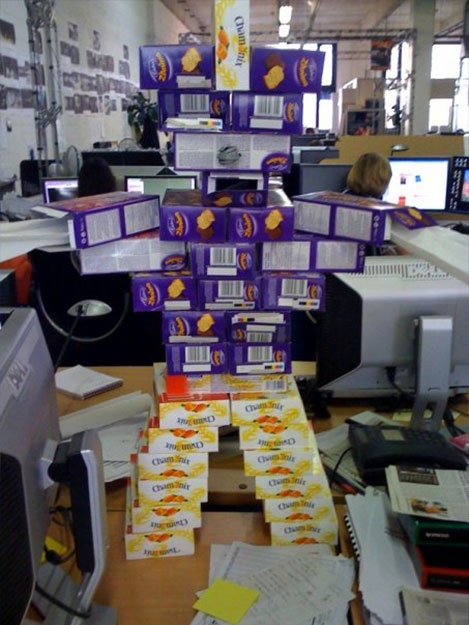
QD: Can you describe to us a typical day for you? Does a typical day even exist for you?
Chaos. All the time. xD Seriously, I couldn’t describe my typical day, except for a few recurring but scattered points: reading the emails each morning sent the day before by the Montreal team, then diving into the Game Building team’s daily meeting. There are also regular synchronization meetings with other departments, notably the one with the Tools team – my favourite meeting! Then, I get on with my tasks, as an aside comes another topic, which raises questions, which lead to another topic… And all the other meetings must somehow fit into this! The complexity is to solve all the issues at the end of the day, or to keep track of them for the next day. Oh, and then sometimes, in the middle of all that, I finish my initial tasks!
QD: What are your external inspirations that are reflected in your job?
I really like branching narrative games, as I was an avid reader of “choose your own adventure” fantasy books in the 80s, which are based on the same concept as Quantic Dream games. It’s not directly reflected in my current work, but it’s reflected in the work I’ve chosen, shall we say ? My other inspirations are orchestral musical works; beyond their artistic component, they are incredible architectures, sometimes very complex. And this is something that inspires me in the creation of video games. To achieve a result that is pleasant and simple for the player, without letting them know the complexity behind it.
QD: Be careful, BIG question… What are your favourite games?
My favourite game of all time might be Final Fantasy XI for the incredible adventures it let me experience, and for its immersion that I think has only been matched recently by games like The Legend of Zelda: Breath of the Wild. But otherwise, lots of J-RPGs, because they often convey a lot of emotion, even in the days of 8 and 16-bit machines. And then, I can love any kind of game as long as the art direction moves me, either visually or musically. For example, I have a huge soft spot for the artwork of Castlevania Lords of Shadow. The same goes for American McGee’s Alice, or more recently Gris. I’d also like to mention Heaven’s Vault, my favourite game of 2021; if you like the narrative adventure genre, don’t miss it! I’ll end by mentioning Silent Hill 2 which was a turning point for me: I realised that video games had something to say, and that if I could, I should become a developer.
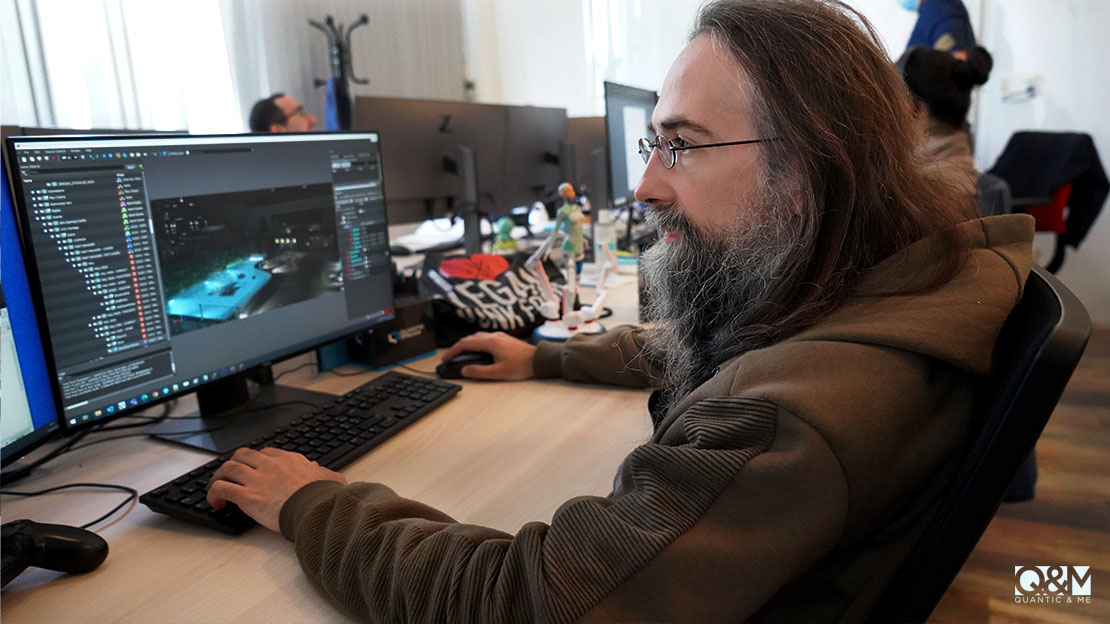
QD: Tell us more about your hobbies outside of work.
Let’s start with the classics for a developer: video games, science fiction, fantasy, manga, comics, novels – but only Star Wars novels! :p And I’m a violinist, I’ve played in classical orchestras (baroque, opera, symphonic, film-concert, etc.), in French song bands, in orchestra + rock-electro mixes (Satine Under Philarmonën)… These days I’ve got a renewed interest in Bach, his music was just incredible!
I also follow very closely everything related to the environment, energy and ethical food. I would like the video game industry to realise that it also has an ethical role to play and should not, for example, always aim for more powerful hardware which can have a negative effect on energy consumption. I know it’s surprising coming from someone who has worked on projects that are often at the cutting edge, but it’s also up to us to raise the subject with our colleagues, our friends, within our games, and even with the players, to change mentalities step by step, rather than looking the other way.
QD: All right! What does your perfect Friday night look like?
I’m sleeping, after the big Level Design/Tools meeting we have with the Montreal team! I want to be energized for the weekends, so I prefer not to burn the candle at both ends on Fridays, I prefer to recover from the week first.
QD: Do you have a message for our readers?
Do you want to become a video game developer? “It’s a trap!” ? For a serious answer, thank you to those of you who have shared streams playing the games we make. It’s extremely moving for us to see you play these works we’ve spent years building and to see your reactions ❤️
QD: Final question! Chocolate cake or Fruit pie?
Chocolate cake, but vegan! Like a brownie, I just can’t resist!

